Info
6 Proven Benefits of Ashwagandha for Hair
Ashwagandha, often referred to as a powerful adaptogen, is renowned for treating stress and anxiety. Recognized in Ayurveda, it serves as a brain tonic that calms the mind and heals various health ailments when ingested or used topically. But what are the benefits of ashwagandha for hair?
Also known as Indian ginseng and Winter cherry, ashwagandha has been a part of traditional alternative medicine systems for thousands of years.
Scientifically known as Withania somnifera, this plant belongs to the Solanaceae family and thrives in dry conditions, primarily found in India.
The root of the ashwagandha plant is used in various forms—including fresh, dried, powdered, tea, or as supplements—to boost immunity, reduce stress, treat inflammation, alleviate anxiety, and enhance energy levels.
Related: Health Benefits of Ashwagandha
The name Ashwagandha is derived from Sanskrit, combining two words: ashwa meaning “horse,” and gandha meaning “fragrance.” This name signifies that the herb imparts strength akin to that of a horse.
Hair loss is a common concern for people of all ages, but it should remain within a manageable limit. Ideally, hair growth and loss should be balanced; when hair loss exceeds growth, it becomes problematic.
According to dermatologists and hair care professionals, over 60% of adult hair loss can be attributed to stress. As an adaptogen, ashwagandha aids in reducing stress and inflammation, consequently helping to mitigate hair loss.
Benefits of Ashwagandha for Hair Health in Ayurveda
In Ayurveda, it is understood that the human body operates based on three doshas: Vata (Wind), Pitta (Fire), and Kapha (Water). Each dosha should maintain its unique balance for optimal health. When these doshas are imbalanced, it can lead to various health issues, including hair loss. Therefore, maintaining equilibrium among the tri-doshas is essential for overall well-being.
Ashwagandha is one of the most widely used Ayurvedic herbs for balancing doshas, particularly aggravated Vata and Kapha doshas. It effectively helps to prevent or halt hair loss caused by dosha imbalances.
Classified as an adaptogen, ashwagandha effectively reduces chronic stress and inflammation and addresses hormone imbalances, all major contributors to hair loss. Moreover, the herb is suitable for all hair types, making it a versatile choice for hair health.
Here we explore the myriad benefits of ashwagandha for promoting healthy hair.
Ashwagandha for Hair Loss
Cortisol, the body’s stress hormone, can negatively affect hair follicles when its levels become elevated. This leads to weakened hair and increased hair loss. Ashwagandha helps to manage stress hormones, effectively controlling hair loss while its healing properties can repair damaged follicles.
Additionally, ashwagandha supplements are known for their mood-enhancing properties that help alleviate stress and anxiety.
Ashwagandha is often recommended for women experiencing hair loss following childbirth.
It May Make Your Hair Strong
Dehydroepiandrosterone (DHEA) is a hormone functioning as an antioxidant that boosts the body’s defenses against cellular damage. Ashwagandha can stimulate DHEA production, thereby protecting hair follicles and the scalp from free radical damage, leading to stronger hair.
Ashwagandha May Improve Scalp Health
Proper blood circulation is essential, as it delivers nutrients and oxygen throughout the body. Ashwagandha enhances blood flow to the scalp, ensuring that hair follicles receive adequate nutrients for healthy growth.
In addition, the flavonoids in ashwagandha are rich in protein, vitamin C, glucose, iron, tannins, nitrate, and potassium—nutrients vital for a healthy scalp and hair.
Ashwagandha for Damaged Hair
As previously mentioned, ashwagandha promotes DHEA production, enhancing collagen and sebum production in the scalp. These two compounds offer protection against sun damage to the scalp and hair. Furthermore, the herb conditions both the scalp and hair, imparting improved texture. Its healing properties can also repair dry, brittle hair.
Ashwagandha May Cure Scalp Irritation
Known as Indian winter cherry, ashwagandha possesses anti-inflammatory properties, preventing inflammation of the scalp and safeguarding hair follicles against weakness and loss. The herb also combats scalp irritation and skin ailments like psoriasis, eczema, itching, and other allergies stemming from inflammation.
Related: Benefits of Ashwagandha for Skin
Ashwagandha May Reverse Gray Hair
Ashwagandha contains amino acids, notably Tyrosine, which is beneficial for hair health. Tyrosine boosts melanin production in hair follicles, thus aiding in restoring lost pigment, which can help reverse gray hair.
How to Use Ashwagandha for Hair
Ashwagandha can be consumed or applied topically. Many individuals take it in ashwagandha powder, ashwagandha tea, or capsule form for health benefits, while others opt for a paste made from dried root for skin and hair applications. Ashwagandha Latte is widely used in India, the land of ayurveda.
Can Be Used For All Hair Types
Ayurvedic practitioners suggest that ashwagandha is suitable for all hair types and textures, especially considering its role in mitigating stress-related damage. Telogen effluvium, a common hair loss condition, particularly affects young men and women. Stress is a significant factor contributing to this type of hair loss.
While research on ashwagandha’s specific benefits for hair is ongoing, its efficacy in reducing stress and anxiety has been established through various studies. Consequently, ashwagandha can help prevent stress-induced hair loss.
Nonetheless, it is advisable to consult a dermatologist or healthcare provider before starting any supplements for hair or health purposes to avoid potential side effects.
How to Use Ashwagandha in Your Daily Hair Care
To notice significant results, find an effective way to integrate ashwagandha into your daily routine, as herbal supplements often require consistent use to exhibit benefits. Thus, to gain all the advantages of ashwagandha for hair growth, carefully incorporate the herb into your regimen.
Oral – Many hair care supplements include ashwagandha as an ingredient. You may consider choosing the best ashwagandha supplements for your wellness. We have Capsule, Tea & Latte and raw ashwagandha root & powder.
Topical – You can directly apply ashwagandha root paste to the scalp, utilizing the herb’s antioxidants against factors that impede hair growth. Alternatively, use ashwagandha oil or extract as a massaging oil for your hair or skin, providing relaxation and stress relief.
Drink – Incorporate ashwagandha powder into your tea or coffee in the morning. Alternatively, enjoy ashwagandha herbal tea without milk or sugar for enhanced benefits.
Include – Enhance your regular shampoo and conditioner with ashwagandha powder to nourish your scalp and hair.
Let’s go further.
Ayurvedic Hair Care Products
Replace chemical-laden shampoos, conditioners, or oils with natural hair care products that feature ashwagandha as a primary ingredient. Alternatively, mix ashwagandha root powder with your existing shampoos and conditioners for topical application.
Ashwagandha Hair Masks
You can prepare a homemade hair mask using ashwagandha root. Apply the mask onto the scalp, massaging gently, and then rinse off.
How to Prepare Homemade Ashwagandha Hair Masks
Ashwagandha Mask for Normal and Oily Hair
- Mix 2 to 3 teaspoons of ashwagandha powder in a cup of warm water.
- Apply the mixture to the hair and scalp, massaging it in thoroughly. Let it sit for 20 to 30 minutes.
- Rinse off with clean water, ensuring no residue remains.
Ashwagandha Mask for Dry Hair
- Combine 2 to 3 teaspoons each of ashwagandha root powder, Brahmi, and hibiscus powder.
- Mix with a cup of yogurt or coconut milk to form a smooth paste.
- Apply to hair and scalp and let it sit for 20 to 30 minutes.
- Wash off with water or shampoo afterward.
Ashwagandha Herbal Tea
Ashwagandha tea is a refreshing herbal beverage that can be enjoyed hot or cold. The herb’s adaptogens boost nerve function, calm the mind, and relieve stress.
Drinking ashwagandha tea in the morning energizes you for the day, while an evening cup helps alleviate fatigue and induce restful sleep.
Related: Health Benefits of Ashwagandha Tea
To prepare a perfect cup of ashwagandha tea, you can use dried roots, powder, or tea bags.
Add a spoonful of ashwagandha tea powder or a couple of dried roots or a tea bag to a cup of boiling water. Allow it to steep for 15 minutes; a tea bag requires just 5 minutes.
Strain the tea, add lemon or honey for flavor, and enjoy.
You can also combine ashwagandha with other herbs and spices, such as tulsi, mint, ginger, or cinnamon, for additional benefits and flavor.
Ashwagandha Churna
Ashwagandha churna or latte can be taken with ghee, honey, or milk as an Ayurvedic supplement to enhance energy levels. When combined with warm cow’s milk, it forms a concoction called Moon milk, which is used in Ayurveda to treat insomnia and sleep disorders.
Consume a spoonful of ashwagandha churna mixed with ghee, warm milk, or honey after breakfast daily. If you are new to herbal supplements, start with a lower dose (e.g., ¼ spoon) and increase gradually according to your body’s response.
Ashwagandha Supplements
Many Ayurvedic supplements for hair growth contain ashwagandha. Generally, a safe dosage is 300 to 500 mg daily, taken in 2 to 3 doses throughout the day.
Regular intake of ashwagandha benefits men by regulating cortisol hormones, promoting testosterone levels, and enhancing sexual health.
Withania somnifera contains fat-soluble components, so it is advisable to consume it alongside meals containing healthy fats.
Ashwagandha Extract
Ashwagandha oil or extract can be used both as a topical massage oil and ingested. Mix a few drops of this extract in warm water and take it as a supplement.
Massaging with ashwagandha oil may provide greater relief from stress, tension, and fatigue.
The Last Word
Ashwagandha is a potent adaptogen used in Ayurvedic medicine to enhance immunity, relieve stress, promote calmness, and address numerous health needs.
While there are no direct studies confirming ashwagandha as a remedy for hair loss, various studies exploring the medicinal properties of the herb suggest it may alleviate factors leading to hair loss. The benefits of ashwagandha for hair have been corroborated through significant research findings.
In Ayurveda, ashwagandha is classified as Rasayana, meaning rejuvenator. This herb exhibits healing, rejuvenating, and revitalizing effects beneficial to hair health.
However, it is crucial to understand how to take it and to maintain a consistent routine. Consulting with a dermatologist or healthcare provider is essential to determine the safe intake for your specific health status and requirements.
Frequently Asked Questions (FAQs)
How Long Should I Take Ashwagandha to Work?
For extensive stress relief, ashwagandha may take a week of consistent usage to show results. However, for hair growth or addressing hair loss, it generally requires a minimum of 12 to 16 weeks.
Does Ashwagandha Aid Hair Growth?
The antibacterial, anti-inflammatory, and antioxidant properties of ashwagandha may reduce conditions that contribute to poor hair growth. However, current research does not support ashwagandha as a herbal treatment specifically for hair growth.
Is Ashwagandha Safe for Extensive Usage?
Ashwagandha is generally safe for all age groups when used under medical guidance. However, using it in excessive doses or inappropriate methods may lead to adverse effects.
Are There Possible Side Effects of Ashwagandha?
When starting ashwagandha, some may experience drowsiness, headaches, or stomach upset, which are typically manageable. If these symptoms persist or worsen, it’s advisable to discontinue use and consult a physician.
What Happens When You Overdose on Ashwagandha?
Excessive use of ashwagandha without a proper diet may cause increased heart rate and skin allergies in certain individuals.
Who Should Avoid Ashwagandha?
Ashwagandha can influence thyroid hormones in both positive and negative ways—it may treat hypothyroidism but could exacerbate hyperthyroidism. Therefore, individuals with thyroid conditions or those on medication for thyroid dysfunction should avoid ashwagandha.
Pregnant or breastfeeding women should avoid using ashwagandha due to potential risks like premature delivery.
Individuals with allergies to plants from the nightshade family (like tomatoes, peppers, and potatoes) may also react negatively to ashwagandha.
As ashwagandha has active ingredients that can impact the immune system, those taking medications for autoimmune diseases (such as rheumatoid arthritis or lupus) should consult a healthcare provider before using ashwagandha.



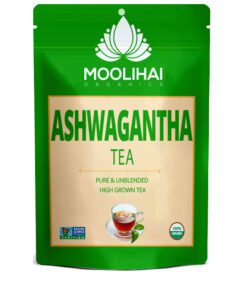
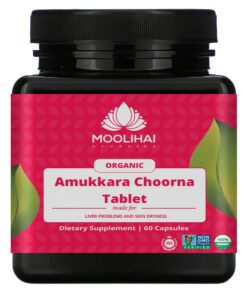
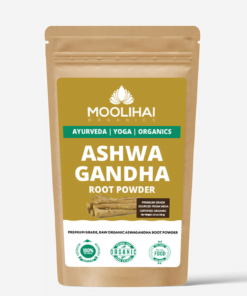

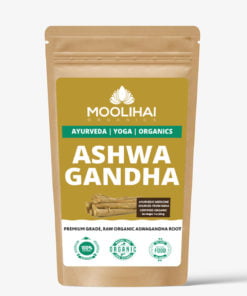


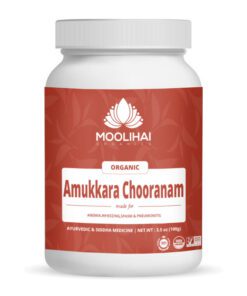

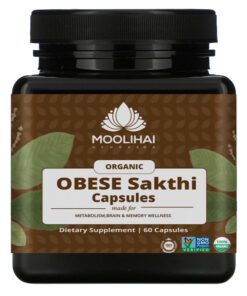
Ponnatharam Stone (Raw) | For Permanent Hair Removal
Vengai Paal | Black Bindi | Dhrishti Pottu | Vengai Pottu for Babies | 100% Natural
Dried Avaram Senna Flower / Cassia Senna Auriculata / Aavaram Poo / Tarwar / Amaltas Leaves / Senna Auriculata / Avaram Poo / Sanay / Alexandrina / Tanner’s Cassia flower
Natural Dried Moringa Flower – Moringa Oleifera – Drumstick Tree Flower – Murungai Poo – Munagaku Flower
Akasa Garudan Kilangu / Redfruit Creeper / Corallocarpus Epigaeus
Original Edible Camphor | Pacha Karpooram | Bhimseni Camphor
Saussurea Obvallata Seeds / Brahmakamal Seeds / Queen of the night / Sacred Saussurea Kon Kapfu / Brahma Kamalam / Nishagandha
Insulin Leaf Powder / Chamaecostus Cuspidatus / Costus Pictus / Spiral Ginger / Insulin Powder / Costus Igneus
Achu Pottu for Babies | Bindi Mould Set | Baby Seratta – 1 Set
Kaunch Beej Powder |Poonaikali | Velvet Bean Powder | Mucuna Pruriens | Kapikacchu | Natural Nervine Tonic & Muscle Builder
Aalam Pazham / Banyan Fruit Powder / Ficus Benghalensis / Marri Palu / Bargad / Dodda Alada Mara / Peraal / Vat Vriksha Powder
Traditional Vasambu Valayal for Babies | Calamus Bracelet | 100 % Pure & Natural